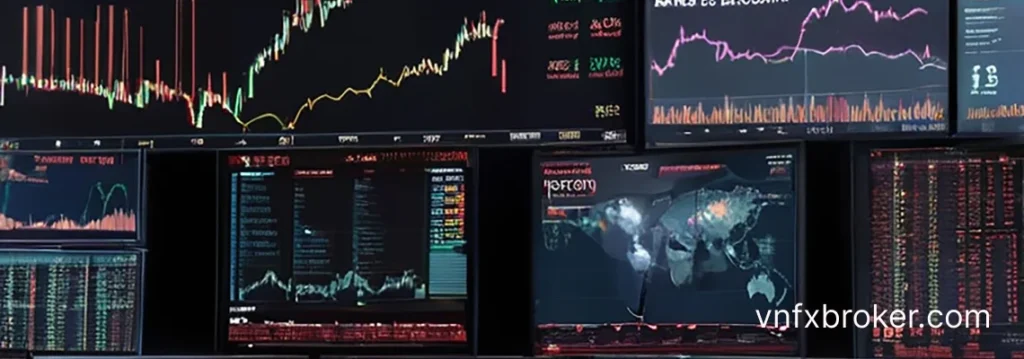Plan Your Profits and Costs with an Exchange Commission Calculator
To plan your budget and maximize profits, you should know how commissions and fees work. This is difficult to do all by yourself; therefore, the market is full of helpful tools and technologies. One of them is a commission calculator that allows traders to estimate the amount of money required for their transactions. The tool offers a great chance for traders to make more profit, not lose too much on fees, and become pros in managing their capital. Read about this and more in the next chapters.


How Commission Calculator Optimizes Trading Strategies?
The role of a trading commission calculator cannot be underestimated. They literally provide investors with a picture of the costs they spend on investing. Putting simply, a good commission calculator can help you with:
- Estimating Trading Costs. The tool calculates the fees of your every trade, so that you better understand where your money goes.
- Comparing Brokers’ Fees. To help you choose the most budget-friendly option, you can use a commission calculator to compare the fees of various brokers.
- Planning Budget & Trades. Recognizing how much you’ll pay for your trades boosts your planning and organizing skills, increases your profits, and minimizes cost-related risks.
This list contains only the necessities you need to acquaint yourself with a commission calculator — it’s a core. About additional perks of the tool, we’ll talk further.
In-Depth Overview of a Trading Commission Calculator
Now, when the basics are covered, let’s move on to the detailed overview of a total commission calculator. We’ll begin this journey with tools you should use and their practical application.
Tools for Calculating Commissions During Trading on Various Markets
A trading commission calculator applies to multiple markets, including stocks, options, futures, and cryptocurrencies. Check what tools and resources are available for this:
- Exchange Commission Calculators: Online tools designed to calculate fees by analyzing each trade and its specifics: type, quantity, and price.
- Brokerage Fee Charts: Outlines costs for trading activities on the basis of brokers’ fee schedules and charts.
- Trading Platforms with Integrated Calculators: Every innovative trading platform has an in-built commission calculator that computes the fees automatically, even before you execute a trade.
- Fintech Software: Advanced financial management software can include tools for calculating commissions and other trading expenses.
We recommend you try every tool to know which one brings you the most profit. You can also combine them — the most important thing is for you to feel comfortable and stress-free while calculating.


Practical Application of Commission Calculator to Determine the Real Costs of Trading
In practice, applying a commission calculator is not that hard. The real-world scenarios of this process involve:
- Inputting Trade Details. Describe your trade and add more info about it, including the number of shares, price per share, and the trade type.
- Calculating Fees. See the exact fees your broker will request from you.
- Comparing Scenarios. Check how different trade types and sizes can lead to different results in the total commission calculator.
By using a commission calculator, investors can see and compare the outcomes of their trades. It’s a must-have tool, especially for those who have a tight budget or just want to be conscious of their spending.
Forex Commission Calculator
Among different kinds of commission calculators, there is one designed specifically for the foreign exchange market. As Forex is quite popular nowadays, we want to dedicate a separate section to it. See what the Forex commission calculator is about, its benefits, and examples of calculating broker commissions in Forex.
Features and Attributes of Forex Commission Calculator
With the Forex commission calculator, you can calculate:
- Spreads Between Bid & Ask. Find out the cost between the bid and ask prices, and see if it matches up with your budget.
- Fees for Different Lot Sizes. From micro to standard lots, calculate the fees for any lot size, and adjust it accordingly.
- Predict Leverage’s Effect. See how leverage influences the total cost of your trade, aligning this number with your financial plan.
These are the most important things you can do with a Forex commission calculator to keep your wallet full and your financial strategy well-organized.


Examples of Operations on Forex Commission Calculator
Before calculating the final commission, there are lots of factors to consider. Check the example and see what we mean.
Example: A trader buys 1 standard lot (100,000 units) of EUR/USD; the broker charges 2 pips spread and $5 commission per lot. The Forex commission calculator determines the end cost, factoring in the spread and commission.
That’s how you get a total sum of your trade and decide whether you want to go with it or the risks outweigh the gains. No need to calculate all these factors by yourself; just enter the needed info in the Forex commission calculator, and that’s it.
About Commission Price Calculator
A commission price calculator is not as specific as the Forex one, though they have a similar function, i.e., calculating the end price of something.
Commission Price Calculator: What Is It Designed For
Overall, a commission price calculator is used to estimate the cost of anything that requires fees. It has a broad spectrum of benefits, including:
- Predicting the Cost of Services. With a proper calculator, you can find out the final price of any financial services, like banking and investment management.
- Determining the Price of Products. See the total cost of financial products, for instance, mutual funds, and consider all sales charges or ongoing fees.
Using a Commission Price Calculator in Finance and Banking
When talking about investments and banking services, a commission price calculator can help with:
- Planning Your Investments. Easily check the cost of buying/selling securities, mutual funds, or ETFs.
- Banking Services Transactions. Calculate fees for banking services, such as wire transfers, loan processing, and account maintenance.
Example: An investor desires to buy mutual fund shares worth $10,000 with a 5% front-end load. The commission price calculator will show that the commission fee is $500; hence, the actual investment will be $9,500.


General Commission Calculator
General commission calculators cover so many types of calculations regarding financial transactions. Read more about it below.
Universal Calculators for Various Types of Financial Transactions
General commission calculators are versatile to handle a ton of different financial transactions, such as:
- Stock Deals. Stress-free calculate fees broker will charge you for buying/selling stocks.
- Option Contracts. See the cost of all available trading options.
- Digital Assets Transactions. Estimate the cost of trading digital currencies on various platforms.
How Common Fee Calculators Simplify Your Calculations
Using universal commission calculators has many perks. The most outstanding of them are:
- Simplicity in Usage. Working experience with the calculator is quite headache-free and straightforward.
- High Versatility. The calculator applies to numerous types of financial transactions.
- Time-Saving Feature. No need for manual calculation — just quickly calculate fees within the tool.
Example: If you’re a trader, you can engage in lots of asset classes and use a general commission calculator to find out the fees for stocks, options, and digital assets, all in one place.
FAQ
Commission calculators typically rely on broker fee schedules, user inputs (details you provide regarding the trade), and market real-time and historical data.
High-tech fee calculators may offer:
- Scenario analysis for different trading contexts.
- Historical data analysis to estimate future spending.
- Integration with trading platforms for real-time fee determining.
Forex commission calculator can be influenced by several factors, among which are spread size, lot size, leverage, and broker fee & commission structure.










